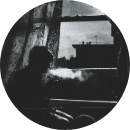Make the letter A,B,C,D on your answer sheet to indicate the sentence that is the closet in meaning to each of the following questions
1. The only that kept us out of prison was the way he spoke the local dialect
A. The way he spoke the local dialect was unique
B. We were sent to prison beacause he spoke only one dialect
C. We sent him to prison because he spoke the local dialect
D. But for his command of the local dialect, we would have been put in prison
2. I did not understand what the lecturer was saying because I had not read his book
A. What the lecturer wrote and said was too difficult for me to understand
B. The lecturer's book which I not had read was dificult for me to understand
C. I found it very difficult to understand what the lecturer was saying if I had read his book
D. I would have understood what the lecturer was saying if I had read this book
3. Without skillful surgery, he would not have survived the operation
A. Had it been for skillful surgery, he would not have survived the operation
B. He would not have survived the orpeation if he had had skillful surgery
C. But for skillful surgery, he would not have survived the opreration
D. He did not survive the operation beacause of unskillful surgery
4. He didn't take his father's advice. That's why he is out of work
A. If he takes his father's advice, he will not be out of work
B. If he had taken his father's advice, he would not be out of work
C. If he had taken his father's advice, he would not have been out of work
D. If he took his father's advice, he would not be out of work
5. It would be nice if you hadn't said that
A. I wish you not to say that
B. I hope you will not say that
C. If only you didn't say that
D. I wish you hadn't said that
6. It was his incompetence which led to their capture
A. If it hadn't been for his incompetence, they would not have been captured
B. They were captured just because he was incompetent
C. If he had been so incomepetent, they would have escaped from captured
D. All of the above
7. If it hadn't been for his carelessness, we would have finished the work
A. If he had been more carefull, we would have completed the work
B. He was careless because he hadn't finished the work
C. If he were careful, he would finish the work
D. Because he wasn't careless, we didn't finish the work
8. It was your assistance that enabled us to get achievement
A. If you need assisted us, we could not get achievement
B. But for your assistance, we could not have got achievement
C. Your assistance discouraged us from get achievement
D. Without your assistance, we could get achievement


















